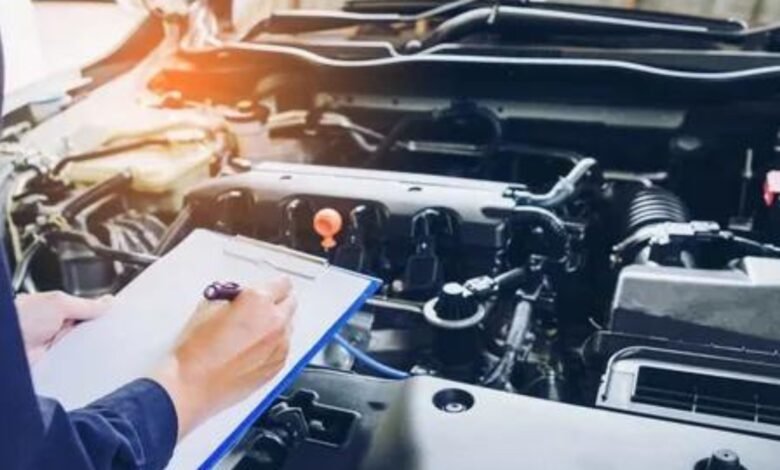What Are the Benefits of Preventative Maintenance in Fleet Vehicle Collision Repair?

When it comes to fleet vehicle management, staying ahead of potential issues is crucial. Fleet managers understand the significance of maintaining their vehicles to ensure smooth operations and minimize unexpected downtime. One aspect of this maintenance regimen that often gets overlooked is preventative maintenance in the context of collision repair. This GUIDE will explore the benefits of containing preventative maintenance strategies in fleet vehicle collision repair protocols.
Understanding Preventative Maintenance
Before we delve into its benefits, let’s grasp the concept of preventative maintenance. Simply put, preventative maintenance involves regularly scheduled inspections, repairs, and replacements aimed at preventing breakdowns and prolonging the lifespan of vehicles. In the context of fleet vehicles, this proactive approach helps mitigate the risk of collisions and ensures that vehicles are in optimal condition to operate safely on the roads.
- Reduced Collision Risks: One of the primary benefits of preventative upkeep in fleet vehicle collision repair is the reduction of collision risks. By conducting regular inspections and addressing prospective issues promptly, fleet managers can identify and rectify mechanical or constructive issues that could compromise the safety of their vehicles. This energetic approach significantly reduces the likelihood of accidents caused by faulty components or worn-out parts.
- Improved Vehicle Performance: Regular maintenance not only elevates safety but also contributes to improved vehicle performance. Well-maintained fleet vehicles operate more efficiently, delivering better fuel economy and overall performance. This saves on operational costs and ensures that vehicles can respond effectively to various driving conditions, minimizing the risk of collisions due to performance-related issues.
- Enhanced Driver Safety: The safety of drivers and passengers should always be a superior priority for fleet managers. Preventative maintenance plays a significant part in ensuring the safety of drivers by addressing potential safety hazards before they escalate into serious problems. By keeping vehicles in optimal condition, fleet managers provide drivers with peace of mind, knowing that they are operating vehicles that have been thoroughly inspected and maintained.
- Minimized Downtime: Unplanned downtime can significantly challenge fleet operations, leading to schedule disruptions and increased costs. Preventative maintenance helps minimize downtime by identifying and tackling issues before they escalate into significant problems that require extensive repairs. By adhering to a regular maintenance schedule, fleet managers can keep their vehicles on the road and avoid unexpected breakdowns that could result in costly delays.
- Cost Savings: While some may view preventative maintenance as an additional expense, it actually leads to significant cost savings in the long run. Fleet managers can avoid costly repairs and replacements by addressing minor issues before they escalate. Additionally, well-maintained vehicles tend to have lower repair and fuel costs, contributing to overall cost savings for the fleet.
- Extended Vehicle Lifespan: Fleet vehicles are a significant investment, and maximizing their lifespan is essential for maximizing ROI. Preventative maintenance plays a key role in extending the lifespan of fleet vehicles by keeping them in optimal condition throughout their operational life. By addressing wear and tear proactively, fleet managers can ensure that their vehicles remain roadworthy for longer, delaying the need for costly replacements.
- Compliance with Regulations: Fleet operations are subject to diverse regulations and standards to ensure the security of drivers and other road users. Regular maintenance is often required to comply with these regulations, and failure to adhere to maintenance protocols can result in fines and penalties. By implementing preventative maintenance practices, fleet managers can ensure that their vehicles meet regulatory requirements and avoid potential legal issues.
- Reduced Liability Risks: In addition to regulatory compliance, preventative maintenance helps mitigate liability risks for fleet managers and operators. Proactively addressing maintenance issues demonstrates a commitment to vehicle safety, which can be crucial in liability claims arising from accidents or injuries. By maintaining comprehensive maintenance records and adhering to industry best practices, fleet managers can strengthen their defense in the event of legal disputes.
- Enhanced Resale Value: Well-maintained vehicles command higher resale values in the secondary market. Fleet managers looking to refresh their fleets or sell off older vehicles can benefit from preventative maintenance by maximizing the resale value of their assets. Potential buyers are willing to pay a bonus for vehicles with documented maintenance histories, as they offer greater assurance of reliability and longevity.
- Streamlined Operations: Preventative maintenance contributes to streamlined fleet operations by minimizing disruptions and optimizing vehicle availability. Fleet managers can proactively address maintenance needs during scheduled downtime to avoid unplanned repairs that disrupt service schedules and workflow. This proactive approach ensures that vehicles are consistently available for deployment, enhancing operational efficiency and customer satisfaction.
- Boosted Brand Reputation: A fleet’s condition reflects directly on the brand’s reputation. Well-maintained vehicles that operate reliably project professionalism and reliability to clients, customers, and the general public. Conversely, poorly maintained vehicles tarnish a brand’s image and erode customer trust. By prioritizing preventative maintenance, fleet managers uphold their brand reputation and instill confidence in their stakeholders.
The Final NOTE
Incorporating preventative maintenance into fleet vehicle collision repair protocols offers many benefits, ranging from enhanced safety and performance to cost savings and regulatory compliance. By adopting a proactive approach to maintenance, fleet managers can minimize collision risks, improve vehicle performance, and extend the lifespan of their vehicles. Ultimately, investing in preventative maintenance is not just about avoiding breakdowns—it’s about safeguarding the safety of drivers, protecting assets, and optimizing fleet operations for long-term success!



